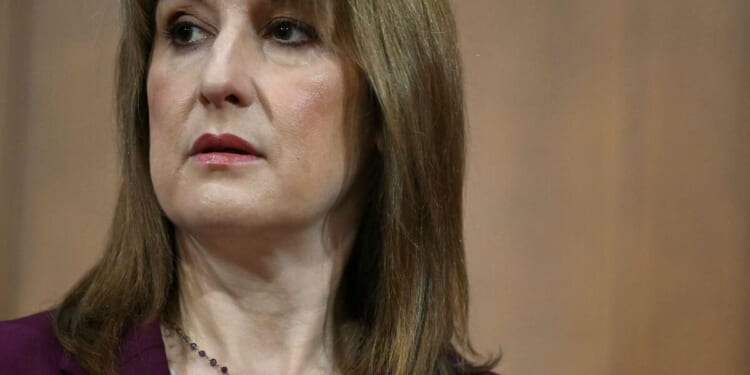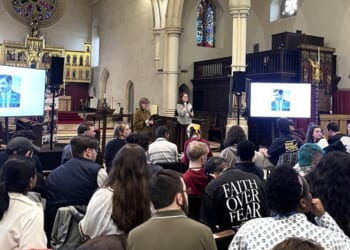Rachel Reeves has been savaged in a new Ipsos poll that brands her the “worst Chancellor ever”, with a staggering 71% of voters saying they are dissatisfied with her performance. The survey delivers a brutal assessment not just of the Chancellor but of Labour’s wider standing, showing the party shedding public trust across major policy areas while Reform UK surges ahead on issues that once formed Labour’s core pitch to the electorate.
According to Ipsos, Labour is no longer the party most trusted to deal with crime, the NHS or even the environment — territory it previously dominated. Instead, voters now place more faith in Reform UK to handle Britain’s future EU relationship, poverty and inequality, housing, defence and a long list of other challenges. The numbers paint an unforgiving picture: Sir Keir Starmer languishes on a net satisfaction rating of –66, and Ms Reeves’s rating is now the lowest ever recorded for a Chancellor since Ipsos began tracking the metric in 1976, reports the Telegraph.
The public’s economic verdict is equally damning. A full 66% of Britons say they do not believe Labour’s policies would improve the economy, a figure that underscores deep scepticism at a moment when the Government desperately needs to demonstrate competence.
The poll also puts Nigel Farage eight points ahead of Sir Keir as preferred Prime Minister — a remarkable outcome which would have been hard to predict when Labour stormed to power last year.
On specific policy areas, the gulf is stark. Reform outperforms Labour on asylum and immigration by 35% to 7%, on crime and anti-social behaviour by 24% to 9%, and on the UK’s future dealings with the EU by 21% to 11%. The pattern repeats across housing, unemployment, defence and tackling inequality, where Labour trails by notable margins.
Even on the environment — once safe territory for Labour — the party is eclipsed, with the Greens attracting 36% to Labour’s meagre 5%. And when it comes to business policy, the Conservatives are still seen as the safer pair of hands, beating Labour 19% to 9%.
Reform also leads voting intention outright, sitting on 33% compared with Labour’s 18%, the Conservatives’ 16%, the Greens’ 15% and the Liberal Democrats’ 12% — a dramatic reversal of political fortunes.
Gideon Skinner, senior director of UK Politics at Ipsos, said the figures “demonstrate the severe difficulties facing Labour ahead of the Budget”, arguing the party has completely failed to reverse a pervasive public sense that the country is in decline.
He noted that Ms Reeves’s collapse comes alongside persistent economic anxiety, with more households struggling today than during the early stages of the cost-of-living crisis.
Mr Skinner added that similar levels of scepticism toward a Government’s long-term economic plans have only been seen in the final years of the Major and Sunak administrations, and under Gordon Brown after the financial crash. The only comparable low point for Labour in Ipsos’s records was in May 2009 during the expenses scandal — a moment the party partially recovered from.
However, he stressed that the context is now far harsher: unprecedented dissatisfaction with both Sir Keir and Ms Reeves, years of pessimism over public services and the economy, and a fragmented political landscape where voters increasingly favour “none of the above”.
He warned that while Labour technically still has time before the next election, turning this around will be far more difficult than in previous downturns.

















